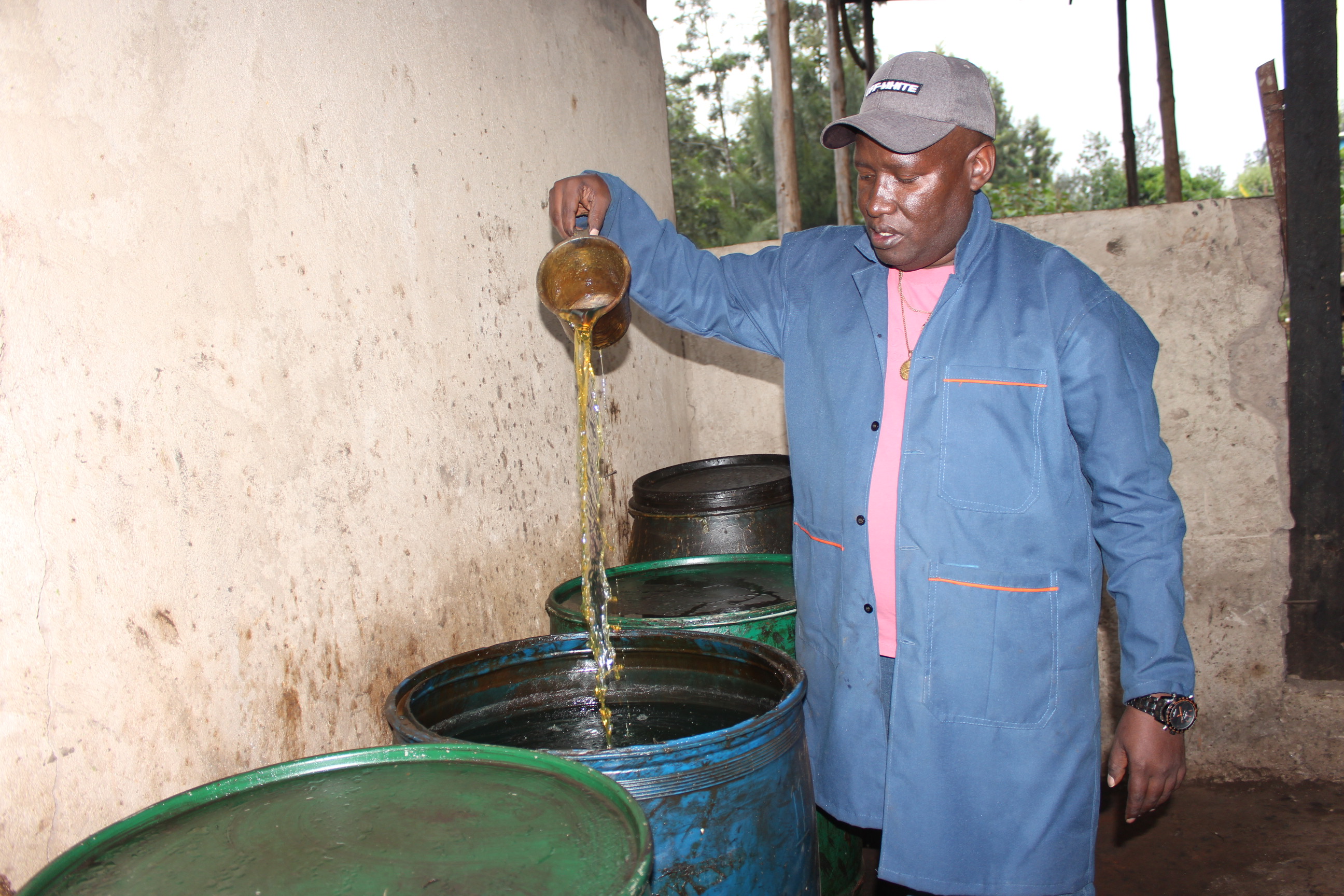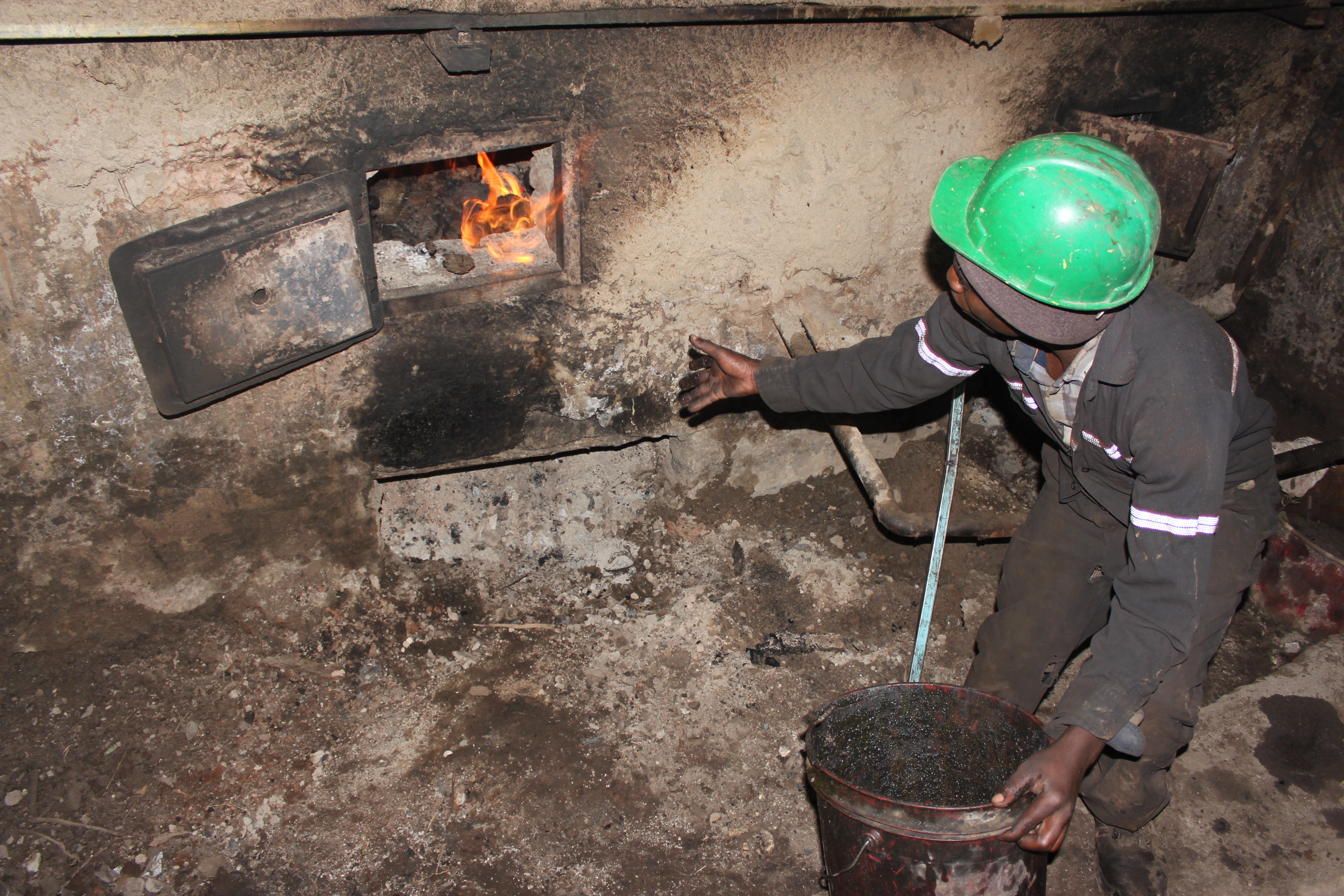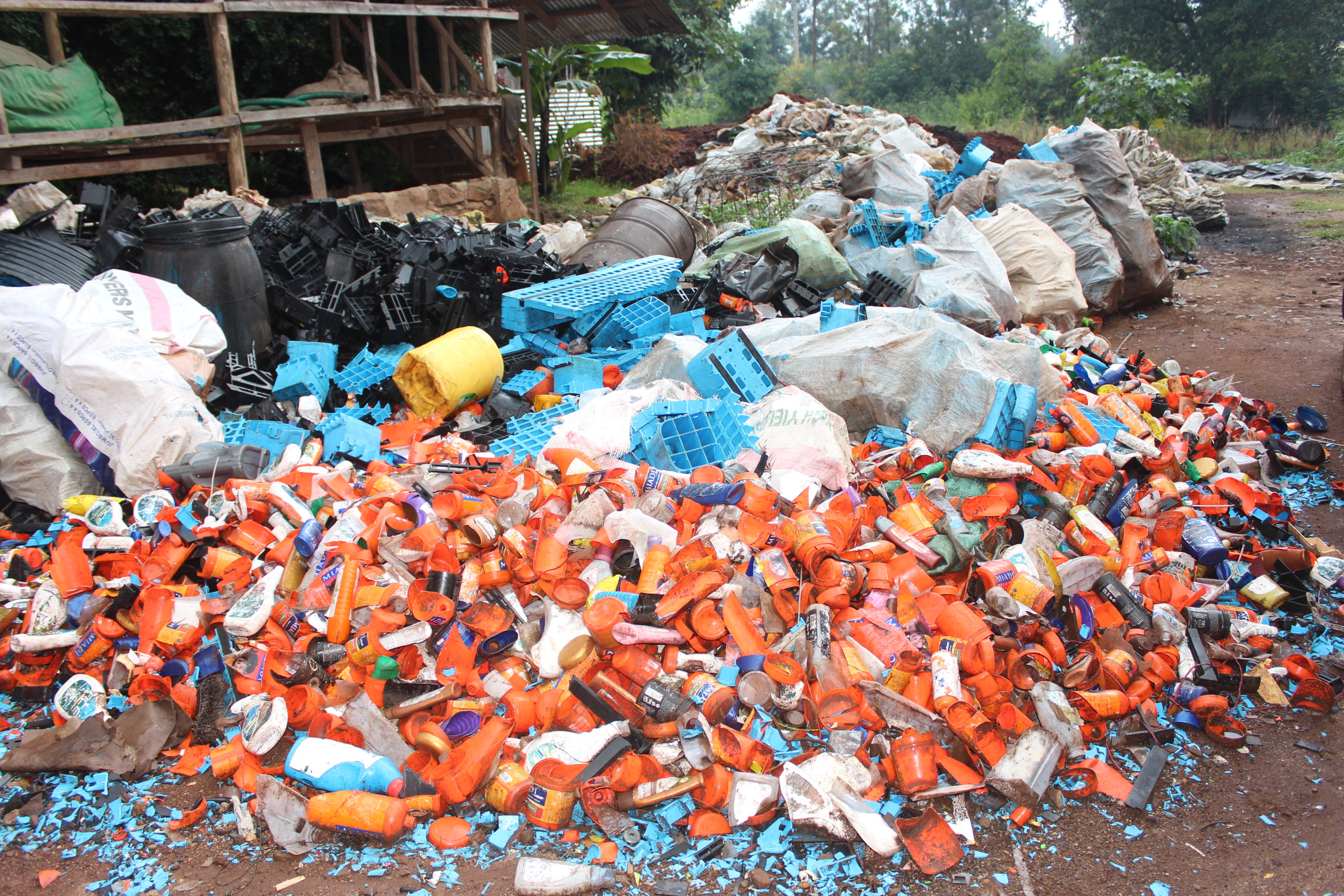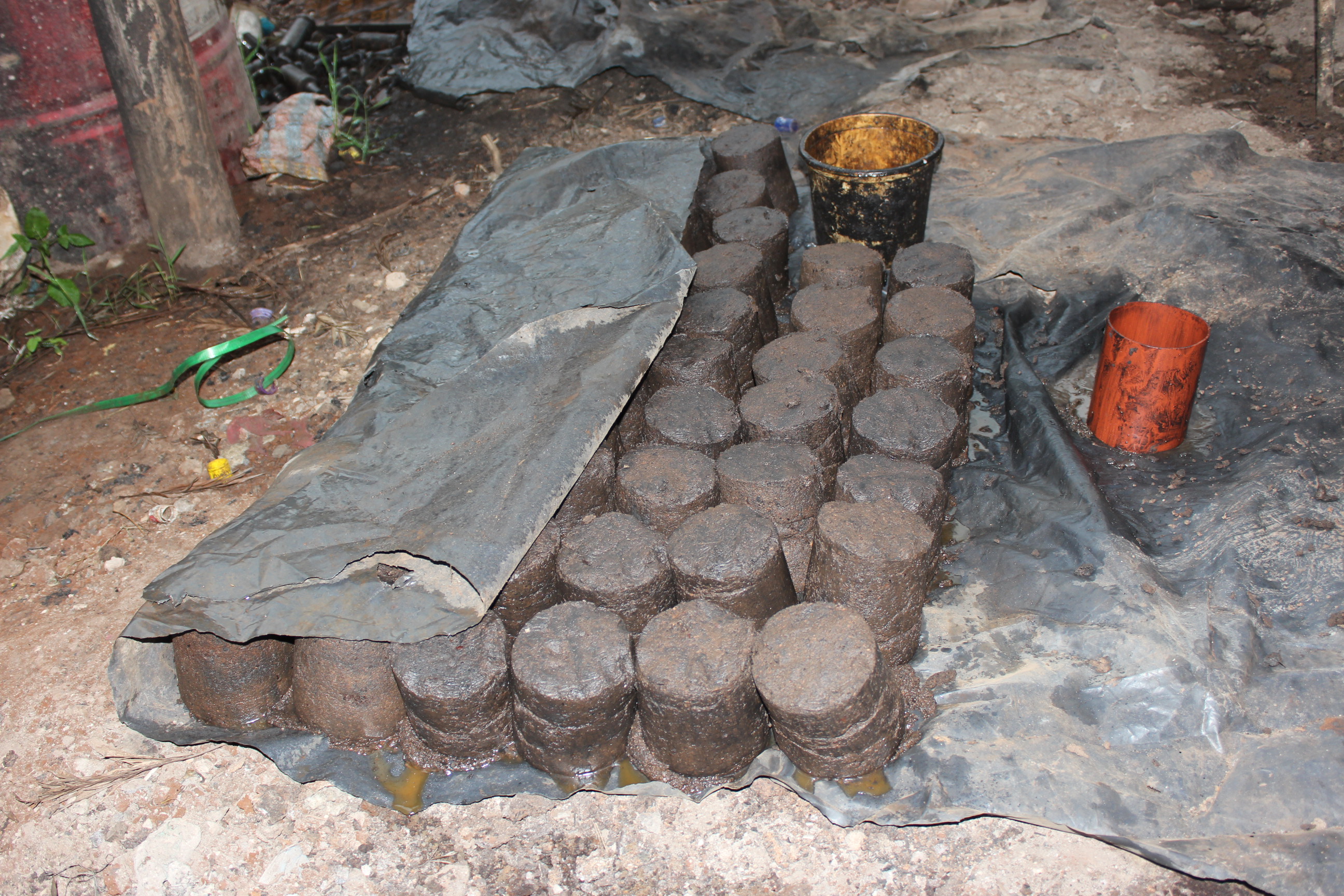
 James Muritu displaying some of the diesel fuel blend produced in his factory in Kenol town in Murang'a County./KNA
James Muritu displaying some of the diesel fuel blend produced in his factory in Kenol town in Murang'a County./KNA
In the heart of Kenol town, Murang'a county, a young Kenyan engineer, James Muritu, is quietly transforming mountains of plastic waste into clean, usable fuel.
His innovation is offering a groundbreaking solution to pollution, fuel costs, and youth unemployment all at once.
Muritu, the founder of Progreen Innovations Limited, produces over 4,000 litres of diesel fuel blend every month using a technique known as pyrolysis.
The method heats sorted plastic in a specially designed reactor under oxygen-free conditions, breaking it down into usable fuel. The blend powers generators, boilers, and even some vehicles depending on its refinement.
"We are currently piloting a petrol blend with boda boda riders and power saw users in Kagundu-ini village. So far, we’ve received positive reviews,” Muritu said, noting that certification is expected by the end of August.
 A worker feeds briquette into a furnace that heats the plastic waste recycling plant./KNA
A worker feeds briquette into a furnace that heats the plastic waste recycling plant./KNA
It’s a venture that Muritu says is both capital-intensive and immensely rewarding.
“Setting up the machinery, acquiring approvals, and maintaining safe operations required significant investment, but the environmental and economic impact is worth it.”
To cut production costs, Muritu uses briquettes made from organic waste—mostly avocado peels from fruit processing plants—to fuel the pyrolysis process.
He binds the organic waste using by-products from the fuel-making process itself. His plan is to scale up from producing one tonne of briquettes daily to 50 tonnes weekly, recycling up to 70 per cent of Kenol’s organic waste.
Muritu has also partnered with a local manufacturer to supply his entire diesel output. “This ensures a constant demand, allowing us to focus on growing the operation,” he said.
The impact of his innovation is already measurable: more than 80 tonnes of plastic have been recycled, preventing over 200 tonnes of greenhouse gas emissions.
“We sort out PVC and non-recyclables. Only clean, high-yield plastics go into the reactor,” he said.
 Heaps of plastics outside the plastic waste recycling plant in Kenol, Murang'a./KNA
Heaps of plastics outside the plastic waste recycling plant in Kenol, Murang'a./KNA
Muritu’s work has gained national recognition. Last year, he won an award from the Kenya Bureau of Standards for innovation.
He hopes that with the right partnerships and funding, he can scale up production to 50,000 litres of diesel per month.
Despite having no formal training in chemical engineering, Muritu's global exposure shaped his inventive spirit.
 Some of the briquettes made using organic avocado waste
Some of the briquettes made using organic avocado waste
“My goal is not just to run a business, but to champion clean energy and environmental conservation,” he said.
“Every litre of fuel we make, every kilo of plastic we recycle, is a step closer to a cleaner, more sustainable Kenya."














